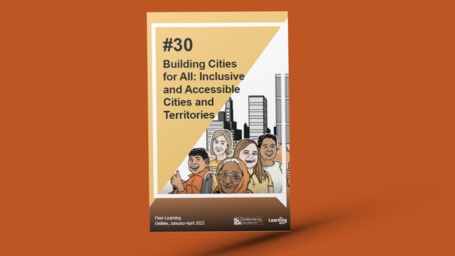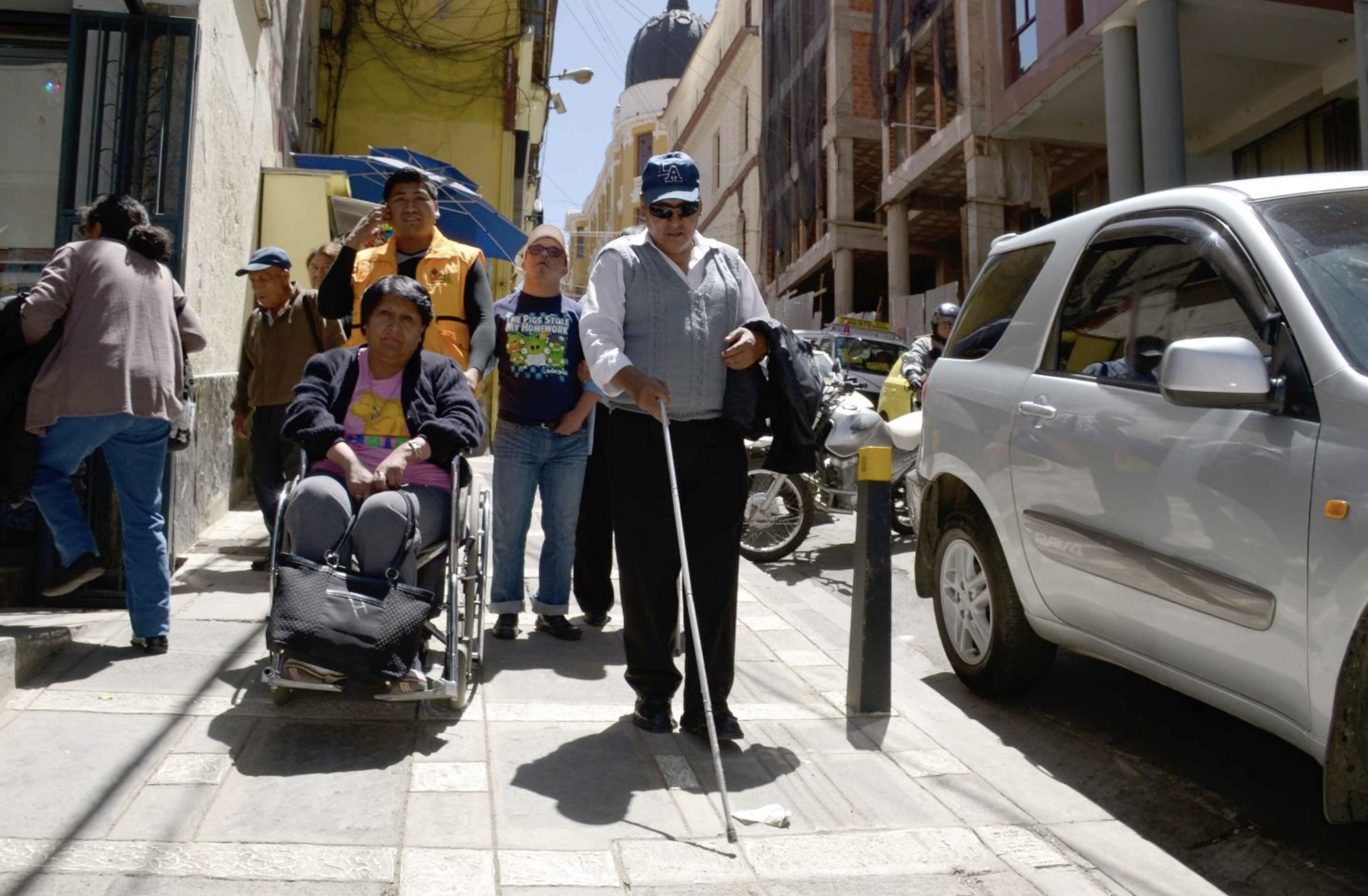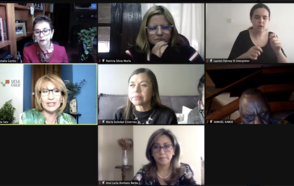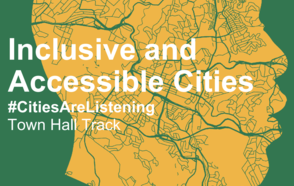
Key lessons from the peer learning process by UCLG’s Community of Practice on Inclusive and Accessible Cities now available!
Persons with disabilities and older persons make up 25% of the global population of which more than half live in cities and towns. As urbanization continues, cities will shape global development, including the way that human rights are respected and put into action. These local processes give opportunities for social inclusion, equitable access to services and jobs, and engaging communities that are often ignored, particularly older persons and persons with disabilities.
The Building Cities for All peer learning series brought together different city representatives from around the world to take a look at how the principles of the Global Compact on Inclusive and Accessible Cities and human rights could be made real at the local level. Organized virtually from the 26th to 28th of January and the 20th to 21st of April, the peer learning events included lectures on the compact and accessibility principles, good practice presentations and discussions, and hands-on activities to reflect on the challenges and opportunities to foster more inclusive and accessible territories.
 To understand the common problems affecting inclusion in the community, the participants looked at different situations connected to accessibility through the learning game “Thinking Inclusive Cities” developed by UCLG’s Learning team. Participants were presented with various photographs representing situations such as the use of service animals, smartphones and other digital technologies, public services in informal areas, and education and sport activities. In groups, they discussed potential barriers different people could face in accessing these, and were invited to think of solutions to them while reflecting on the principles of the Global Compact as shown in the graphic.
To understand the common problems affecting inclusion in the community, the participants looked at different situations connected to accessibility through the learning game “Thinking Inclusive Cities” developed by UCLG’s Learning team. Participants were presented with various photographs representing situations such as the use of service animals, smartphones and other digital technologies, public services in informal areas, and education and sport activities. In groups, they discussed potential barriers different people could face in accessing these, and were invited to think of solutions to them while reflecting on the principles of the Global Compact as shown in the graphic.
To further understand these principles in action the cities of Banjarmasin (Indonesia), Mersin (Turkey), Lisbon (Portugal), La Paz (Bolivia),
Santa Fe and Villa Carlos Paz (Argentina) shared their actions and the challenges they have overcome to make accessibility and universal design central parts of local strategies and programs. Participants also had the chance to further develop integral solutions through the “Co-Designing Cities for All” exercise, and reflect on how to advocate for the inclusion of accessibility concerns in local policy cycles and projects through the “Universal Design Debate” which placed participants in opposing sides of the debate for investing in concrete accessibility projects.
The good practices presented, as well as exercises used and key lessons from the discussions are now available in this peer learning note, with further details from some of the practices shared in the urban sustainability exchange (use) platform.












![[flyer] Print screen of flyer of the campaign: Universal Accessibility: Pillar and Bridge in Human Rights and Sustainable Development" campaign. It shows an accessible and inclusive city, with a balance of gender, age, ethnicity and types of disability, among others.](https://www.old.uclg.org/sites/default/files/styles/frontbanner/public/accesibility-banner.png?itok=nlSdVCrj)
